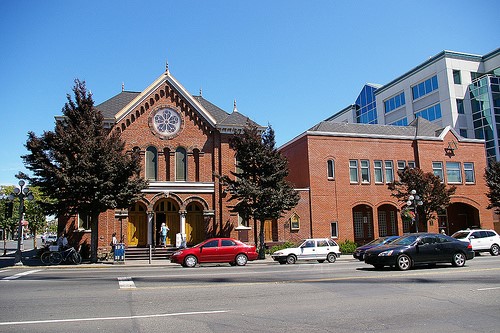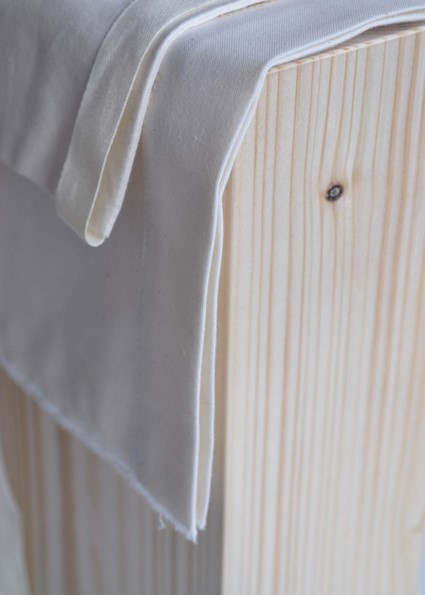The first day of the Heritage Archaeology Field course was important for me in terms of reflecting on the meaning of this work to the wider community in Victoria, especially of course the Jewish community. The words that kept coming up for me were dogma, tradition, and ritual. These were interesting terms to reflect on as they have important meanings for the community at large but also in my own daily life as I go about fulfilling requirements for my undergraduate degree, often without realizing it.
A term I don’t often hear in conversation is dogma. This word conjures up strict rules of belief or conduct, often surrounding religious or philosophical belief. Dogma was used by Rabbi Harry Brechner in referring to the Jewish culture and religion as not following strict guidelines in terms of everyone having to believe the same thing. As a side note, Rabbi Harry and Congregation Emanu-El were a warm introduction to the world of Judaism in Victoria for someone who has had very little direct experience with the Jewish community. As an example of Rabbi Harry’s warm nature, this clip about the importance of ensuring justice and freedom for all peoples was great to watch. This reference to dogma by Rabbi Harry was followed by discussion of the importance of remembering those who have passed in the community, but also ensuring that we remain present in our actions.

Emanu-el Synagogue, Victoria, BC. Taken from http://www.congregationemanuel.ca/history.html
There was also reference to the deep tradition in the Jewish community regarding the process of mourning and burial. These traditions come form the scriptures and are sometimes thousands of years old. This respect for deep history and tradition holds much of the community together in the often tumultuous times of death, and allows for deep reflection and a lingering peace for those who are bereaved. The tradition of never allowing the deceased’s body to be left alone also brings those in the community closer to the understanding of death as a natural process. The more we treat death as natural and expected the greater space we can have for allowing those around us to feel whatever feelings they have surround death and dying. The traditions also allow for a certain comfort for those who are experiencing the loss of loved ones, expected actions and behaviours can give them the satisfaction of doing all that has been asked by those who have died.
The practice and experience of ritual has been removed from much of our secular society, as we move further away from ideas around religious ritual and mysticism. There are important aspects of ritual that are taken for granted in much of our everyday lives. The role of the Chevra Kadisha in the Jewish community is to ensure that the rituals of preparing the body for burial are followed. These groups (for either male or female deceased persons) allow for the proper respect to be paid after death, through ritual. The experience of ritual brings comfort but also allows for experiences that move beyond quotidian life. Opening one’s mind to the effects of ritual on one’s experience, especially in death and dying, can allow for more enlightening interactions with those who are dying and those who are still on this earth.
